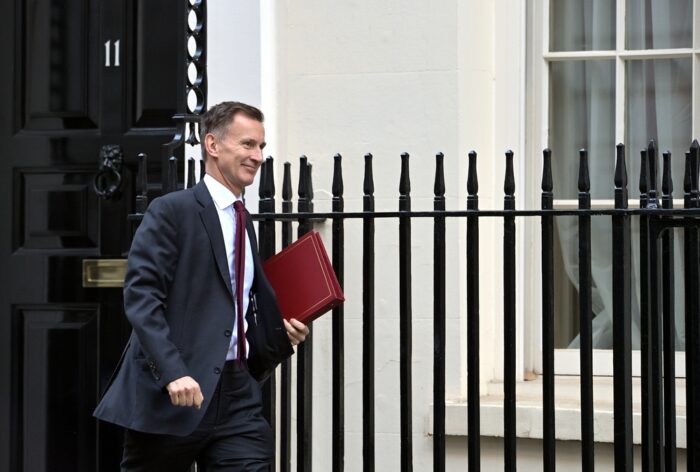Chancellor Jeremy Hunt could announce cuts to inheritance tax and stamp duty in next week’s Autumn Statement following positive forecasts about the state of the country’s public finances.
Better-than-expected public finance projections from the Office of Budget Responsibility, the independent watchdog to the Treasury, mean that Hunt’s headroom to fund tax cuts or spending had grown to between £13bn and £15bn, according to a report by the Telegraph.
The Chancellor has ruled out cuts to personal taxes, fearing that such a move would fuel a rise in inflation which is currently 6.7%. However, cuts to inheritance tax and stamp duty are considered to have less of an impact on inflation.
Facing weak growth forecasts, Hunt is said to be rethinking his initial plan to wait until the March 2024 Budget to cut taxes to stimulate the economy. However, reports suggest that if the cuts are deemed unaffordable, changes may still be pushed back to March next year.
The Conservative Party is currently trailing Labour in the polls and making such cuts would be one way to try and improve Prime Minister Rishi Sunak and his party’s popularity.
Suggestions of the changes the Chancellor may make include a cut to the headline rate of inheritance tax, currently 40%, and a stamp duty rebate for buyers who improve the energy efficiency of their homes.
A freeze on tax thresholds and soaring property prices have meant more households are being impacted by inheritance tax. According to analysis by the Institute of Fiscal Studies, one in eight families could be dragged into the inheritance tax net if the rules remain unchanged.
Inheritance tax is paid by bereaved families on the value of the estate their loved one has left behind, if the value the estate, which is the combined value of all the deceased’s assets, is worth more than £325,000. The value of any assets above this threshold is taxed at 40%.
Certain allowances and exemptions can help households to lower their inheritance tax liability or legitimately avoid it entirely.
For example, if you leave everything above the threshold to your spouse, civil partner, a charity or a community amateur sports club there is no tax to pay.
Your threshold increases to £500,000 if you give away your home to your children or grandchildren.
You can boost your spouse’s or civil partner’s tax-free allowance too. When you die, if your estate is worth less than the £325,000 threshold your unused threshold can be added to your partner’s.
Stamp duty: explained
Stamp duty is tax that is frequently tinkered with and used as a lever to stimulate the economy, as we saw during the pandemic when a stamp duty holiday was announced driving steep house price growth in the two years that followed.
Stamp duty is based on the value of the property and is paid by the buyer. Different stamp duty bands apply to different portions of the purchase price, instead of one rate applying to the entire price.
Currently, for non-first-time buyers the stamp duty bands are:
Up to £250,000 = 0%
Between £250,001 and £925,000 = 5%
Between £925,001 and £1.5m = 10%
Above £1.5m = 12%.
First-time buyers are entitled to an exemption and pay no stamp duty on the first £425,000 of their property price.
A tax of 5% is payable on the portion from £425,001 to £625,000. If the price is over £625,000, first-time buyers cannot claim the relief.

